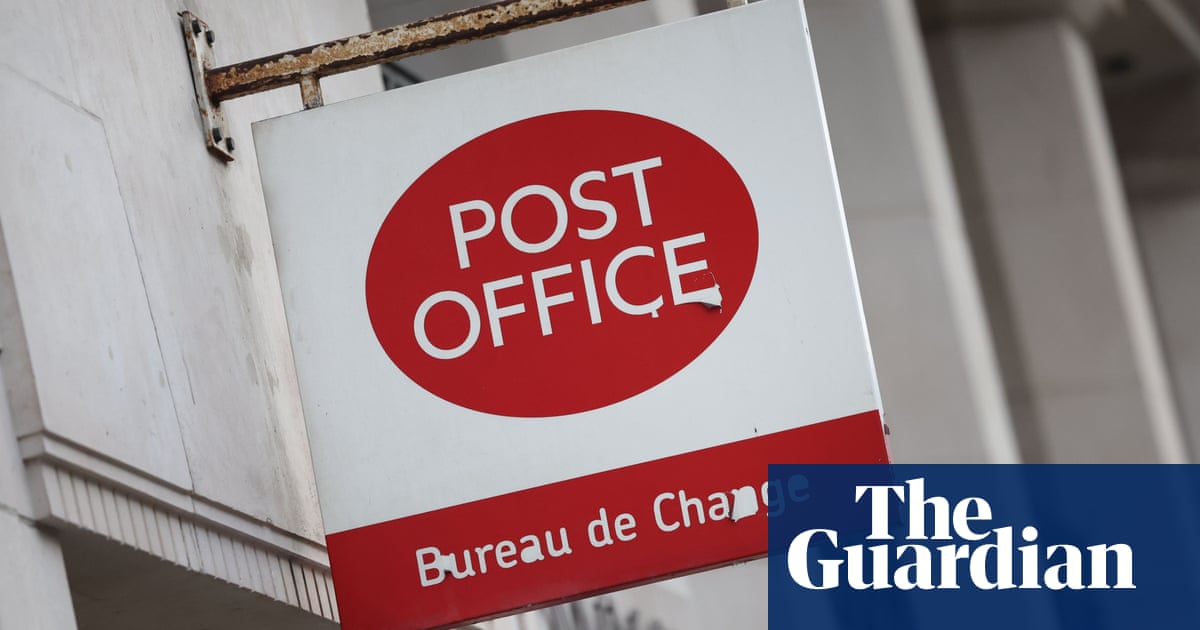Post Office investigators saw Horizon victims as ‘enemies’, inquiry told

Post office operators who blamed the Horizon IT system for cash shortfalls in their branches were viewed by the state-owned company’s investigators as “enemies of the business”, a public inquiry has heard.
The Post Office inquiry has seen part of a draft report prepared in 2013 by investigators at the accountancy firm Second Sight, which had been asked to examine concerns around the Horizon IT system.
Hundreds of people running UK post offices were wrongly prosecuted for theft and false accounting and had their lives ruined in what has been described as the worst miscarriage of justice in recent British legal history.
The ITV drama Mr Bates vs the Post Office put the injustice in the spotlight earlier this year, prompting calls for ministers to address the scandal more speedily amid claims that they had sought to delay compensation payments to victims.
Chris Aujard, a former senior lawyer at the Post Office, was asked at the public inquiry in London on Thursday why he had taken no action when handed a draft report by Second Sight after he joined the Post Office as interim general counsel in October 2013. He remained at the company until 2015.
The Second Sight report said the culture within the Post Office investigation team “appears to be one of a ‘presumption of guilt’ when conducting an investigation, rather than one of ‘seeking the truth’”. It found certain post office operators “passionately believed” they were innocent.
The draft report said: “It is the handling of this group that seems to have been seriously flawed. By failing to investigate those assertions (or even to pay proper heed to them during interviews) the investigators have alienated all of them. It is that group … who really have become enemies of the business.”
Flora Page, a barrister acting for a number of victims of the scandal, put to Aujard that the report showed “needless adversarialism” by the Post Office’s investigation team.
He responded: “This is a specific case of a specific team allegedly behaving in a certain way … and I do agree, this reads as though that team is adopting an adversarial approach to their investigation.”
Page then asked: “This was telling you, was it not, that there were serious concerns over past prosecutions, wasn’t it?”
Aujard replied he had “no specific recollection of what I thought of the document at the time” although he believed he would have asked questions about why the Second Sight report had been commissioned and whether it was an attempt to remove certain individuals from the investigation team.
after newsletter promotion
He added: “It is a draft report that is heavily caveated and would at some point in the future had I been a permanent general counsel and stayed in the role … it would require further investigation to understand what had gone on historically in that team.”
“Did it require immediate attention or not?” Page asked.
“My view at the time was that given it was marked as a draft document and heavily caveated … it was something that would have required investigation in due course,” Aujard told the hearing.
Wyn Williams, the retired judge heading the inquiry, asked Aujard what had happened to the draft report. He replied that when he arrived at the Post Office he would have “read it and put it to one side … I cannot recollect taking any further action in relation to this document.”
Related
Why investing in women is a vital next step for…
Get Nadine White's Race Report newsletter for a fresh perspective on the week's newsGet our free newsletter from The Independent's Race CorrespondentGet our fre
Business secretary signals major shift on electric car policy to…
In a determined effort to retain Nissan’s manufacturing presence in Britain, Business Secretary Jonathan Reynolds has vowed to implement “substantial c
Joint Statement: Business Secretary and Fujitsu Services Ltd
Business and Trade Secretary Jonathan Reynolds today (Friday 7 March) met chiefs for Fujitsu in Tokyo to begin talks over the cost of redress for victims of th
UK foreign secretary backs multilateral defence funding for Europe
UK foreign secretary David Lammy has said that a new multilateral fund will be needed to secure Europe’s defence as he confirmed that Britain is “open to”













